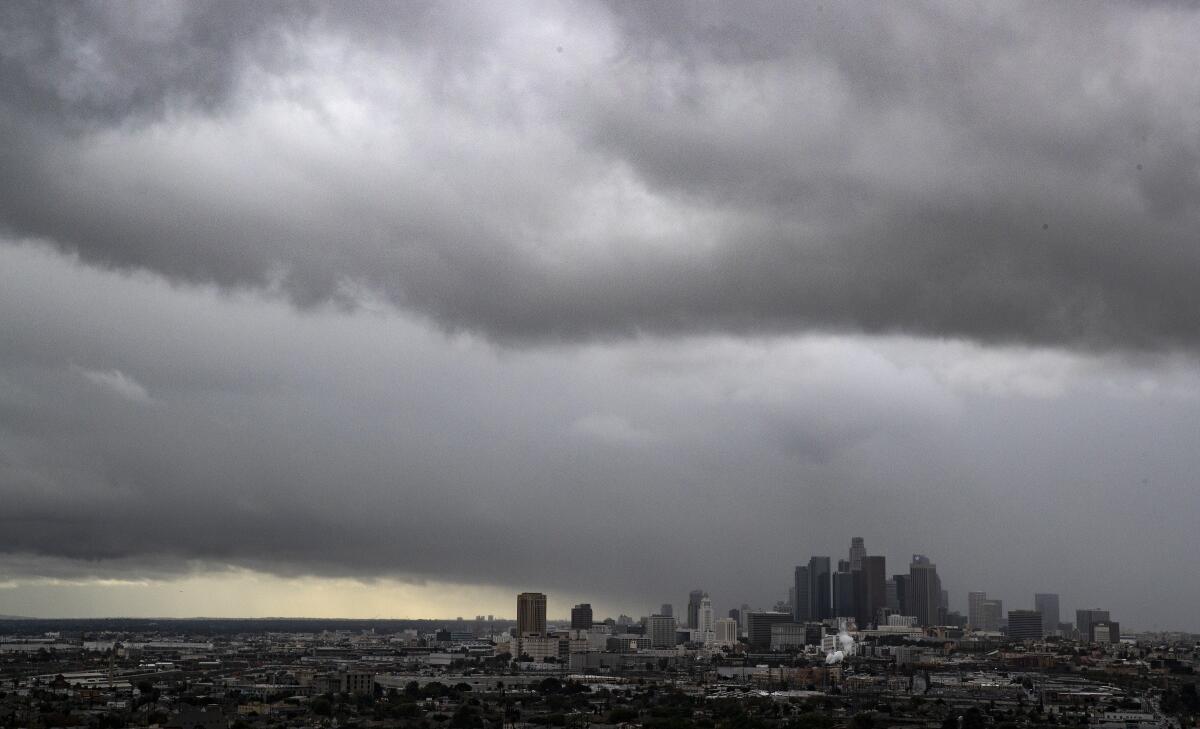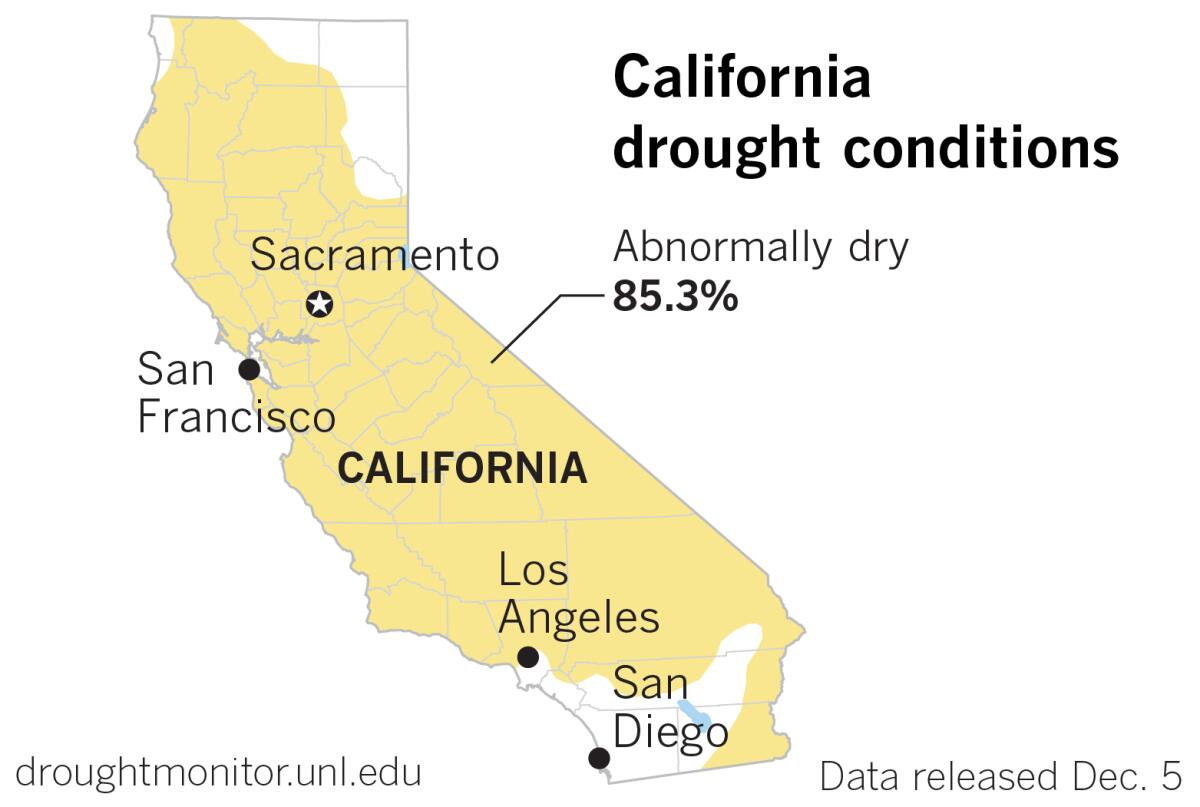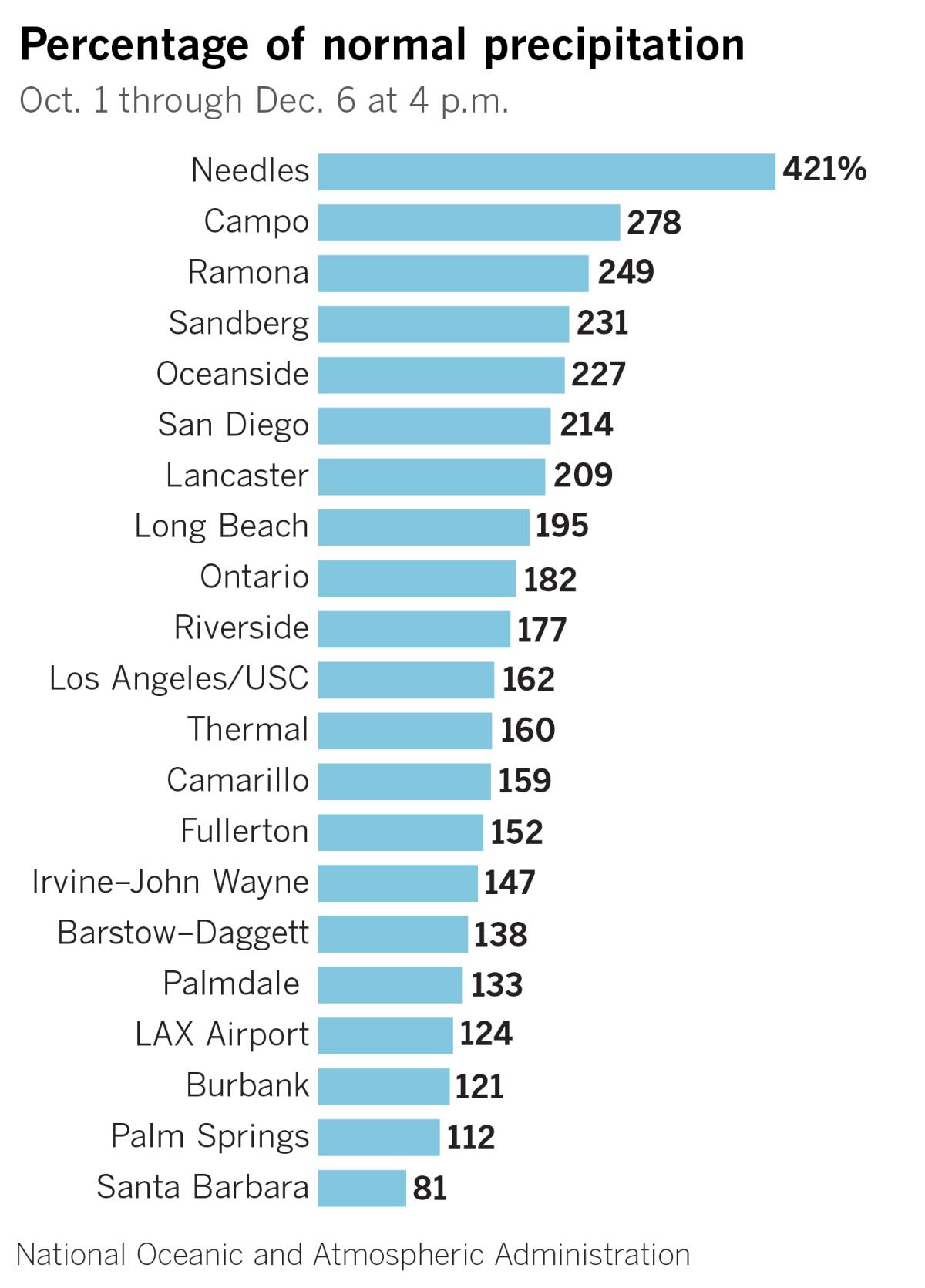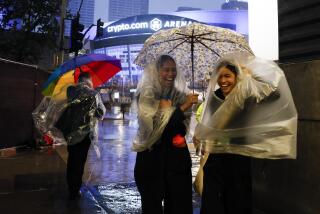Has recent rain made a dent in the California drought?

The most recent Drought Monitor for California is mostly unchanged, with 85.3% of the state considered to be abnormally dry, according to data released Thursday. The portion of the state deemed to be in moderate drought — mainly along the Colorado River and the Nevada border — essentially vanished since previous reports, and the portion of the state shown as being drought-free increased by about 5.5% to 14.7%.
The U.S. Drought Monitor is produced jointly by the National Drought Mitigation Center at the University of Nebraska-Lincoln, the U.S. Department of Agriculture, and the National Oceanic and Atmospheric Administration.

The latest rainfall figures show Northern California lagging. San Francisco has received only 43% of its normal rainfall for the period of Oct. 1 through Dec. 6. Livermore is at 20%, Crescent City is at 28%, San Jose is at 58% and Sacramento is at 73%. Northern California’s rain season usually starts earlier than Southern California’s, but this year Northern California got a later start and Southern California got an earlier start, said Bill Patzert, former climatologist with NASA’s Jet Propulsion Laboratory.
Central California fared a bit better for the same period: Stockton had received 114% of its normal rain; Paso Robles was at 188%; and Merced stood at 197%.
Recent storms hit the whole state, and that put some Southern California reporting stations ahead of normal for the period beginning Oct. 1.

After almost eight dry months, the rain is welcome, but is it any indication of how this rain season will turn out in the Southland? Most of the rain that falls in Southern California is in January, February and March. “Without an El Niño or a La Niña out in the Pacific,” Patzert says, “the rest of season is a toss-up. Our recent rains are a drought damper, but only a down payment on a drought buster.”
More to Read
Sign up for Essential California
The most important California stories and recommendations in your inbox every morning.
You may occasionally receive promotional content from the Los Angeles Times.











